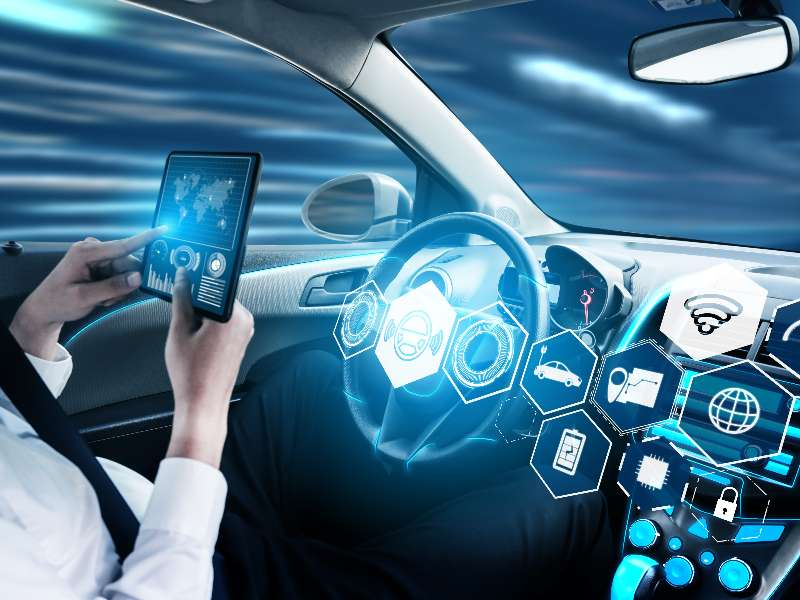In a world increasingly driven by technological advancements, the intersection of artificial intelligence and electric vehicles (EVs) is revolutionizing the future of transportation. According to Bloomberg Green, the global electric vehicle market is expected to reach a staggering $1.3 trillion by 2030. This rapid growth is fueled by the integration of AI technologies, which are set to transform EVs into autonomous powerhouses. In this article, we will explore how AI-driven EVs are shaping the future of autonomous transportation, providing insights into current trends, technological advancements, and what this means for consumers and the environment.
The Rise of AI in Electric Vehicles
AI-Powered Features in Modern EVs
Artificial intelligence is becoming an integral part of modern EVs, enhancing not only the driving experience but also safety and efficiency. Here are some AI-powered features that are transforming EVs:
- Adaptive Cruise Control: AI systems can adjust speed and maintain a safe distance from other vehicles, providing a smoother driving experience.
- Autonomous Parking: Advanced sensors and AI algorithms allow EVs to park autonomously, reducing the stress of parking in tight spots.
- Predictive Maintenance: AI can predict when a vehicle requires maintenance, minimizing unexpected breakdowns and extending the vehicle’s lifespan.
Tesla, a leader in the EV market, has been pioneering AI integration with its Autopilot system, which is capable of steering, accelerating, and braking automatically. As reported by Electrek, Tesla’s Full Self-Driving (FSD) feature is continually being updated with AI-driven capabilities, bringing us closer to fully autonomous vehicles.
The Role of AI in EV Efficiency
AI is not just about autonomy; it also plays a crucial role in improving the efficiency of EVs. AI algorithms optimize battery management systems, ensuring longer battery life and better performance. According to Battery University, AI-driven energy management systems can increase battery efficiency by up to 30%.
Autonomous Driving: The Future is Now
Levels of Autonomous Driving
Understanding the levels of autonomous driving is key to appreciating the advancements in this field. The Society of Automotive Engineers (SAE) defines six levels of driving automation:
- Level 0: No automation
- Level 1: Driver assistance
- Level 2: Partial automation
- Level 3: Conditional automation
- Level 4: High automation
- Level 5: Full automation
Currently, most AI-driven EVs operate at Level 2, with companies like Waymo and Tesla working towards achieving Level 4 and eventually Level 5 autonomy.
Real-World Applications and Challenges
AI-driven EVs are already being tested on roads worldwide. Waymo, a subsidiary of Alphabet Inc., has launched a fully autonomous ride-hailing service in Phoenix, Arizona. However, challenges remain, such as regulatory hurdles and the need for extensive data collection to ensure safety and reliability.
Consumer Impact: What This Means for You
Benefits of AI-Driven EVs
The integration of AI in EVs offers numerous benefits for consumers:
- Enhanced Safety: AI systems can identify and react to potential hazards faster than human drivers.
- Improved Convenience: Autonomous driving features reduce the stress of long drives and daily commutes.
- Environmental Impact: AI optimizes energy consumption, reducing the carbon footprint of EVs.
How to Choose the Right AI-Driven EV
When considering the purchase of an AI-driven EV, it’s important to compare features and capabilities:
- Autonomy Level: Ensure the vehicle’s autonomous features match your needs.
- Battery Life and Efficiency: Look for models with AI-optimized energy management.
- Brand Reputation: Consider trusted brands like Tesla, Rivian, and Hyundai, which are leading in AI integration.
InsideEVs suggests checking for the latest software updates, as AI-driven features are continually improving.
The Road Ahead: A Vision for the Future
As AI continues to evolve, the future of autonomous transportation looks promising. Industry experts predict that by 2040, nearly 60% of new cars sold could be autonomous. The convergence of AI, EVs, and autonomous technology will redefine personal mobility, urban planning, and environmental sustainability.
Governments and manufacturers must collaborate to address regulatory and infrastructural challenges. Investment in smart city technology and charging infrastructure will be crucial to support the widespread adoption of autonomous EVs.
In conclusion, AI-driven EVs are not just a futuristic concept; they are actively shaping the future of autonomous transportation today. As consumers, staying informed and embracing these advancements will ensure we reap the benefits of a safer, more efficient, and environmentally friendly transport system. What are your thoughts on the future of AI-driven EVs? Share your opinions and join the conversation about the future of mobility.
As we look forward to a world where technology and sustainability go hand in hand, it’s clear that AI-driven EVs are paving the way for a more innovative and cleaner future. Keep an eye on this space, as the road to autonomous transportation is just beginning!

